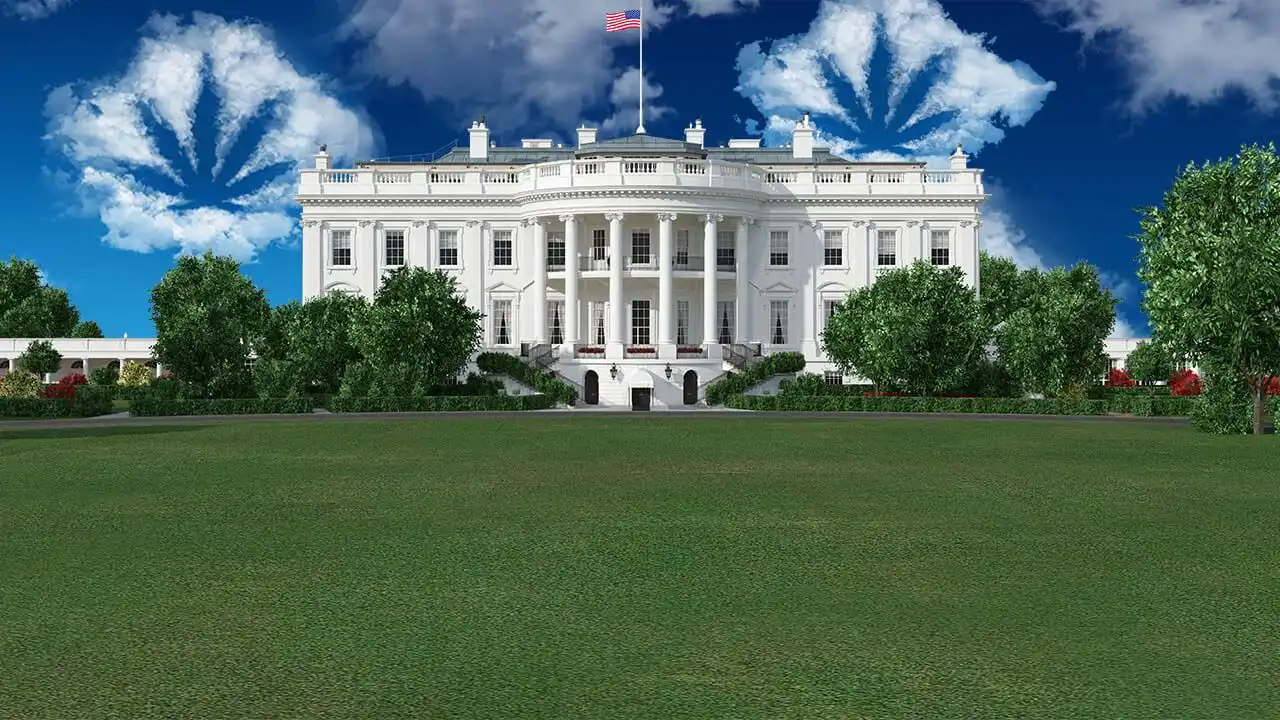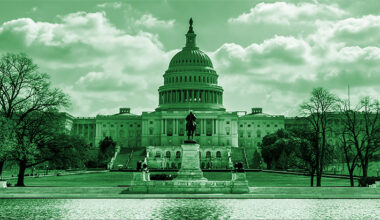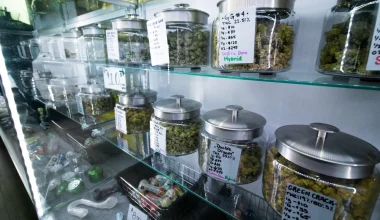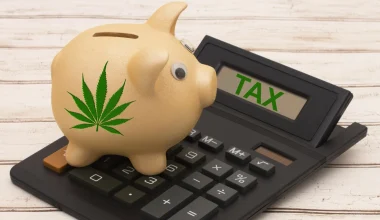President Donald Trump’s campaign-trail support for medical cannabis and more recent promise to consider downgrading marijuana’s status under federal law means hope for the $32 billion legal industry.
Meanwhile, Trump Justice Department attorneys are preparing to defend federal marijuana prohibition as well as limiting marijuana users’ right to own firearms before the U.S. Supreme Court.
That’s creating an apparent dissonance and leaving observers – and an uncertain industry – guessing as to the White House’s real feelings on the issue.
The legal cannabis industry is eagerly awaiting the latest advancement in stalled federal reform amid onerous federal taxes and competition from the intoxicating hemp-derived THC products unleashed by the 2018 Farm Bill.
With Congress unable to pass reforms, other methods have been sought via the other two branches of the federal government.
And the Supreme Court may hear at least two cannabis-related cases in its next term:
- USA v. Hemani, in which a Texas man is challenging the federal government’s refusal to allow cannabis users to legally possess firearms.
- And Canna Provisions v. Bondi, a challenge to a 2005 SCOTUS ruling that many in the industry believe could be a work-around to bypass Congress’ inability to pass meaningful reform.
The latter is considered the biggest opportunity for the legalization movement and the cannabis industry for a landmark high-court ruling in 20 years.
At the same time, some legal observers tell MJBizDaily that a gun-rights case may force the administration to articulate its view on cannabis – or leave the Supreme Court to unravel the issue.
And hovering all over that is Trump’s pledge last week to give serious consideration to a Biden-era proposal to reclassify marijuana as a less-dangerous substance under federal law.
Predicting what he’ll do is made more difficult by a series of mixed messages, including key cabinet appointments, such as an anti-cannabis Drug Enforcement Administration chief, and a general embrace of law-and-order amid an immigration crackdown.
Limited White House hints on marijuana rescheduling
When he took office in January, Trump inherited the most significant federal marijuana policy question since the 1970 Controlled Substances Act: Should federal law be adjusted to reflect marijuana’s wide acceptance as a medicinal treatment?
Despite a campaign-trail endorsement of both moving cannabis to Schedule 3 and a failed adult-use marijuana voter initiative in Florida, where he’s a registered voter, Trump has given little attention to the issue since his return to the White House.
That’s left observers to fill in gaps with what information is available – and guess whether the Justice Department’s efforts to curtail gun rights for cannabis users and uphold marijuana prohibition via the courts indicate how the president may act.
The ongoing court cases “necessarily demand the (Trump) administration … to respond to a variety of claims about the current state of the law,” said Douglas Berman, a professor at the Moritz College of Law at the Ohio State University.
What lawyers for the Trump administration say in court “could be a tea leaf to read, in some sense,” he added.
At the same time, “it shouldn’t be overread,” he added. “It’s not as if the folks making marijuana policy in the White House are sitting down with the lawyers.”
Could marijuana and firearms provide rescheduling hint?
In USA v. Hemani, a case the Justice Department appealed to the Supreme Court, a Texas man was charged with unlawfully possessing a pistol because he was a regular marijuana user.
Federal law forbids anyone who is “an unlawful user of or addicted to any controlled substance” from possessing firearms.
An appellate court threw out the government’s case against Ali Danial Hemani, declaring that the country’s history of gun regulation does “not support disarming a sober person solely on past substance use.”
The Trump DOJ wants the Supreme Court to intervene and throw out the appellate decision and limit the Second Amendment rights of “drug users and addicts.”
Rescheduling is unlikely to help Hemani.
Some critics and skeptics have tried to argue that moving marijuana to Schedule 3 would be detrimental to legal cannabis as it exists in the U.S.
They say legal Schedule 3 drugs are available only via a prescription – and are available only after a lengthy Food and Drug Administration (FDA) approval process.
That would mean cannabis users would still be violating federal law – and could be denied gun rights.
The upshot is that a Supreme Court case would put the administration on record on this point of law.
“This is the kind of case that presents the greatest likelihood that the Supreme Court will have to grapple with some aspects of modern marijuana realities,” Berman said.
“And, given that the Trump administration is clearly more pro-individual gun owner and more supportive of broader Second Amendment rights, they may have a harder time or at least feel uncomfortable articulating a broad rule that says, ‘No Second Amendment rights for anybody and everybody who uses marijuana.’”
Supreme Court to decide on challenge to federal marijuana prohibition
Meanwhile, another case on cannabis may be headed to the nation’s highest court.
Chicago-based multistate operator Verano Holdings and three Massachusetts-based co-plaintiffs sued the U.S. Department of Justice in October 2023, alleging that federal marijuana prohibition under the Controlled Substances Act is no longer constitutional.
The Supreme Court on Aug. 15 granted a request by the cannabis companies’ counsel, super litigator David Boies, to be given until October to file his petition to be heard before the nation’s highest court.
That’s after a federal appeals court in May rejected their constitutional challenge as expected.
The goal all along was to bring the matter before the Supreme Court for the first consideration of marijuana prohibition since a 2005 case.
Policy can trump court
Some observers cautioned that the Trump administration may defend laws currently on the books while simultaneously changing laws.
“Litigation is not necessarily a policy signal,” said Hirsh Jain, co-founder of Los Angeles-based consultancy Ananda Strategy and an attorney who lectures at the University of Nevada, Las Vegas.
“DOJ attorneys are obligated to defend statutes on the books, while administrative agencies through the rulemaking process fashion new policies,” he said. “Decisions around rescheduling appear to be unfolding on a separate administrative and political track” than major litigation.
Subscribe to the MJBiz Factbook
Exclusive industry data and analysis to help you make informed business decisions and avoid costly missteps. All the facts, none of the hype.
What you will get:
- Monthly and quarterly updates, with new data & insights
- Financial forecasts + capital investment trends
- State-by-state guide to regulations, taxes & market opportunities
- Annual survey of cannabis businesses
- Consumer insights
- And more!
Trump may be pro-MMJ, skeptical on adult-use
The Supreme Court cases may also compel the federal government to draw a key distinction between medical marijuana and adult-use cannabis that makes up the majority of the national industry.
Trump has hinted at a dividing line between adult-use and medical marijuana.
“Some people like it, some people hate it,” the president said last week. “Some people hate the whole concept of marijuana.
“It does bad for the children. It does bad for people who are older than children.
“It’s a very complicated subject, as you know, the subject of marijuana. I’ve heard great things having to do with medical. And I’ve heard bad things having to do with just about everything else.”
Chris Roberts can be reached at chris.roberts@mjbizdaily.com.
Medical Disclaimer:
The information provided in these blog posts is intended for general informational and educational purposes only. It is not a substitute for professional medical advice, diagnosis, or treatment. Always seek the advice of your physician or other qualified healthcare provider with any questions you may have regarding a medical condition. The use of any information provided in these blog posts is solely at your own risk. The authors and the website do not recommend or endorse any specific products, treatments, or procedures mentioned. Reliance on any information in these blog posts is solely at your own discretion.






